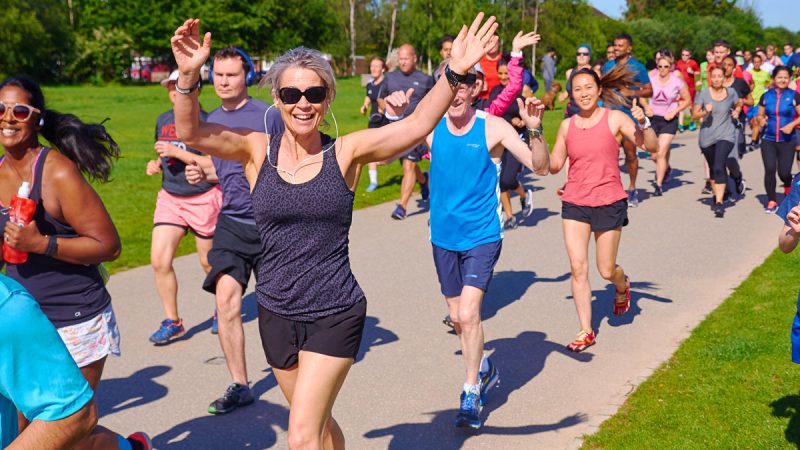30 September 2020
Outdoor events could support mental and physical wellbeing without significantly increasing risk of Covid-19 transmission

As tighter restrictions on informal gatherings are introduced, a new study suggests that managed outdoor events and activities could be delivered in a way that does not significantly increase the transmission of Covid-19, as long as organisers balance and mitigate risks across a variety of factors.
A rapid review of evidence for outdoor transmission of Covid-19 by the Centre for Sport, Physical Education & Activity Research (spear) at Canterbury Christ Church University, suggests that organised outdoor activities and events, which are managed and where risks are assessed and mitigated, are significantly less at risk of escalating the spread of the disease compared to unregulated, unmitigated gatherings.
The evidence from the review will be essential to discussions on if, when and how outdoor events can resume or be delivered.
Professor Mike Weed, Pro Vice-Chancellor (Research and Enterprise) at Canterbury Christ Church University, and lead for the study, explained: “As limitations on informal gatherings look set to continue for some time, the re-introduction of well managed and organised outdoor events, will be an important contributor to maintaining and supporting mental and physical wellbeing.
“There has generally been a presumption against hosting outdoor gatherings, but because outdoor transmission risk in everyday life is so low, we believe this presumption should be reconsidered.”
“New restrictions on informal gatherings, such as the ‘rule of six’, have been introduced by the Government to prevent multiple, unregulated and unmitigated gatherings, which when they happen at volume every day increases the risk of the disease escalating from sporadic transmission to widespread community outbreaks. But for organised events, our review leads us to conclude that where it is possible to put appropriate evidence-based risk mitigations in place, outdoor events and activities can be delivered in a way that does not significantly increase the Covid-19 risk from sporadic transmission to cluster outbreaks.”
Professor Weed continued: “The review will be vital in supporting discussions on whether, and how, organised outdoor events can safely return, as well as helping organisers of these events, across participation and spectator sports, concerts, festivals, political rallies, and public celebrations such as firework displays, to consider and evaluate the ways they can mitigate risks to deliver their outdoor events without significantly raising transmission risk.”
The review was commissioned by parkrun and has helped them to understand the evidence and how to mitigate risks surrounding outdoor transmission of Covd-19 to build a framework so that they can work toward opening their events across the world.
Tom Williams, Chief Operating Officer, parkrun Global, said: “This research has allowed us to develop and apply evidence-based adaptations to our Covid-19 Framework, allowing events around the world to reopen safely. In the UK, as we move toward winter it will become more important than ever before to get people outside and active. Our experience also shows us that group settings with a social focus are particularly important for communities where health inequalities are greatest.”
The review identifies key risk factors, such as the density of a gathering, how much people circulate, the duration people are there, and size. Hosts and organisers should assess these factors for all parts of their event. Importantly, they also need to consider the underlying risk of the rate of infection in the community.
Risk factors can mitigate each other, for example the risk of transmission in a large gathering could lessen if crowds were less dense, and less time is spent within them. Or a more dense gathering would be less of a risk if there was less movement of people around and between the crowd, and time spent in the crowd was reduced.
The review also highlights the importance of considering risks outside of the event, including how attendees travel to the event and use of public transport, socialising at bars, cafes and other indoor venues away from the main event, and the likelihood of collective stays in overnight accommodation.
The key overall risk of outdoor events and activities is that sporadic transmission will escalate to cluster outbreaks, the review therefore notes that it is essential that organisers are able to facilitate rapid contact tracing.
Read more at Christ Church Media News Centre.
0 comments on “Outdoor events could support mental and physical wellbeing without significantly increasing risk of Covid-19 transmission”